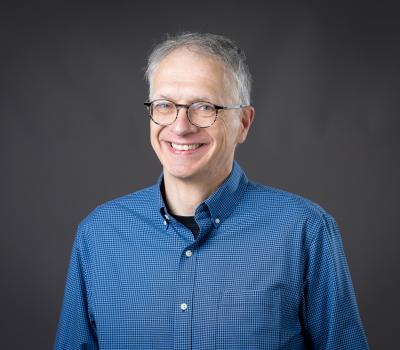
As a teenager growing up in Germany, Martin Erwig learned classical guitar, but he decided it would be cooler to play in a rock band. To earn enough money for an electric guitar and amplifier, he worked at construction sites doing physical labor, like shoveling gravel and carrying stones.
“It was that experience of getting my hands dirty that made me appreciate working with my head,” he said. It also succeeded in getting him the required equipment to form a band, and they played their own songs at school functions.
“I’ve moved beyond that now, though, and returned to my classical guitar roots,” he said.
And the opportunity to work with his head soon presented itself: An optional after-school class on computers sparked his interest in computer science.
“Being able to create your own world and then change the rules to see what happens — that was very fascinating to me. It still is!” he said.
After that experience, there was no question that he wanted to study computer science in college, although more physical work was in store for him first. He completed a 15-month compulsory stint in the army as a tank driver before starting his studies at University of Dortmund in Germany.
Wanting some hands-on experience with computers, he designed databases for different companies during college.
“Working with these clunky databases was very cumbersome. I was always thinking about how this could have been done in a much better way and expressed more clearly,” he said, explaining that it later became the topic of his thesis.
More recently his work has focused on domain-specific languages (DSL). It’s an area that appeals to his interest in creating an environment where things can be expressed in a more succinct way. For example, he helped researchers in oceanography who needed to make simulation programs for ocean modeling, and the DSL he developed simplified their job by creating the ocean modeling tools they needed.
He delights in the applications his students come up with in his class on DSL, including salsa dancing, juggling, and game theory.
“It’s fun to tap into the creativity of the students and their interests outside of computer science,” he said.
His desire to think deeply and analyze various topics extends also to his leisure time. Both he and his son share an interest in debate.
“This might be a natural inclination that we uncovered here in the U.S.,” he said.
For his son, it was a summer camp that inspired him to join the debate team in high school. Erwig enjoys discussing debate topics with his son, but more formally he has participated in the Socratic Club debates and was also the faculty advisor for the Advocates for Freethought and Skepticism at OSU for several years.
“I view the University as not just a place where we provide students with specific technical knowledge, but as a place where students learn how to think and how to be independent as people,” he said.
Indeed, Erwig says what he values about being a professor is mentoring students and watching them develop into people he can then learn from, and the academic freedom to pursue challenging and interesting problems. And wherever he goes, even on a bus ride to work, he finds opportunities for thoughtful discussions.
“On the bus, any topic you pick up has to be dealt with within seven minutes!” he says.
Those seven-minute discussions ended up being the catalyst for a book he wrote to explain computer science to the general public, called “Once Upon an Algorithm.” The brief conversations inspired Erwig to develop shortcuts to explain abstract concepts. He found that if he used familiar stories like “Hansel and Gretel” as a basis for his explanations, people seemed to catch on more quickly. The idea developed into the book, which was published by The MIT Press in 2017 and received a 2017 Best Book Award from American Book Fest. He was interviewed about the book by KATU, XRAY in the Morning, and The MIT Press. He also wrote a blog post published by The MIT Press.
Erwig says understanding computer science is critical for everyone in an age in which huge software challenges impact all of us, such as the approaching reality of self-driving cars.
“Even if you are not a mechanic, you have enough mechanical knowledge to understand the basics. You know what it means when the brakes don’t work,” Erwig said. “If you have a rudimentary understanding of computing concepts, then you will be able to follow and participate in the discussions related to computer science.”

